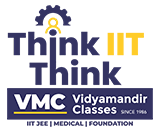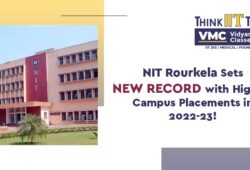How to Prepare for Medical Entrance
 Posted On
Posted On
334 total views, 1 views today
Gearing up for medical entrance exams is one of the most arduous assignments that fresh graduates, on their way out of schools, face every year. In addition to that, the all-around stress of board exams flanked by the self-oriented hopes builds a sufficient amount of pressure to aggravate any student. Consequently, one has to understand the best way to organize to bear the best outcome and at the same time not be over-consuming as well.
Let us take a look at how to go about and gear up for the exams.
Generic pointers on systematic preparation for Medical Entrance Exams
- It is a tough contest and involves a lot of exertion. Despite these difficulties, with determination and efforts in studies it is achievable to breeze through these exams with flying colours. Have a timetable in place and adhere to it.
- The essence is effective planning and prioritization of tasks. Therefore, it is critical to plan and execute both, short-term as well as long-term objectives. The twin purpose that these can serve is covering the largest part of the syllabus and also consistently be on the revision mode.
- The board exams should also be taken into account at the time of studying for medical competitive exams. A large number of students commit the blunder of disregarding the boards when they are inclined towards the other exam. While doing this, they do not realize that they are actually compromising on their admission criteria. One should always bear in mind that there is a minimum percentage that is needed in the board exams to qualify for admissions and this is irrespective of the ranking one scores in the competitive exams. The content of the subjects being similar makes it easy to concentrate on both.
- Besides the NCERT selection and convergence of books that give more clarity on your subjects it is important to refer to books suggested by those in the field. At the same time, it is not right to toggle through a variety of books to end up in a confused state of mind.
- Not a single topic should be left untouched, regardless of how dull or uninteresting it may seem. Be it Biology, Physics, or Chemistry, all specialities have the same likelihood of scoring. Before hand preparations ensure ease of stress at the final stages.
- Take advantage of websites that help your preparations in motivating ways. This is an enjoyable approach to revisit and reassess your learning and also get to know new concepts.
- The different study websites contain sample papers mock tests along with the preceding years’ papers. Exercise on them exhaustively and take the maximum from identical stuff on various websites.
- Clock your exams. Finishing the exam on or within the time limit is an ability that comes with practice. Practice makes one more precise and fast. Effective distribution of time is an important substance of every competitive exam.
- One must be updated with every official announcement/broadcast.
- These exams have a very high impact on a student’s life therefore it is compelling that one disconnects from every diversion, but at the same time this does not translate to being detached.
Imperative topics to study for Medical Entrance Exams
Medical entrances are based on three subjects – Biology (Botany and Zoology), Physics and Chemistry. Let us look into each subject and its inclination in the previous year papers. We will get clarity on the topics that are more important have a higher probability of scoring.
Nevertheless, a candidate has to be aware that marking styles keep on changing with time. Therefore, by no means must a student go on to skip topics that did not have too many questions in the last year. Every significant topic should be paid equal attention.
Botany
- Molecular origin of inheritance:DNA packing, DNA replication, Genetic code, Genetic material, RNA processing (higher weightage questions)
- Ecology: Ecosystem, Environmental issues, Biodiversity, Population growth model, Stratification (higher weightage questions)
- Reproduction in a flowering plants: Embryo sac, Pollination, Endosperm (higher weightage questions)
- Plant Kingdom: Algae, Angiosperms, Gymnosperms, Lifecycles, Mycorrhizae (higher weightage questions)
- Genetics: Blood grouping, Genetic disorder, Mendel’s biography, Mendel’s selected characters (higher percentage of questions)
- Biological classification: Kingdom Monera, virus (medium percentage of questions)
- Cell biology: Cell division, mitochondria, prokaryotic cell (medium percentage of questions)
- Plant anatomy(medium weightage questions)
- Plant morphology(medium weightage questions)
- Living world (low weightage questions)
- Morphology (low weightage questions)
- Morphology of flowering plants (low weightage questions)
Zoology
- Human physiology: Circulatory system, digestive system, nervous system, excretory system, endocrine system, respiratory system, sense organs, skeletal system (high weightage questions)
- Microbes in human welfare: Bio processing, industrial products, sewage treatment (high weightage questions)
- Bio molecules: DNA, Enzymes, Lipids, RNA processing (high weightage questions)
- Animal kingdom: Chordates and hemichordates, Porifera, mammals (medium weightage questions)
- Biotechnology: Artificial vector, PAGE (medium weightage questions)
- Human health and disease: Immune system, infectious disease(medium weightage questions)
- Reproductive health: Artificial fertilization, contraception methods (medium weightage questions)
- Strategies for enhancement of food production: Animal husbandry, artificial selection(medium weightage questions)
- Human reproduction(low weightage questions)
- Evolution(low weightage questions)
- Animal morphology(low weightage questions)
- Animal physiology (low weightage questions)
Physics
- Mechanics: Circular motion, gravitation, Newton’s laws of motion, fluid mechanics and properties of matter, elasticity and viscosity, rectilinear motion and vectors, relative motion, rigid body dynamics, electromagnetic waves, units and dimensions (high weightage questions)
- Electrodynamics: electromagnetic induction, capacitance, electrostatics, current electricity, electromagnetic field (high weightage questions)
- Optics: Geometrical optics, physical optics, wave optics(medium weightage questions)
- Heat and thermodynamics: Heat transfer, KTG, Thermodynamics(medium weightage questions)
- SHM and Waves: SHM, Sound waves(low weightage questions)
- Modern Physics: Nuclear physics, semiconductors(low weightage questions)
Chemistry
- Organic chemistry I (low weightage questions)
- Organic chemistry II: Bio molecules, aromatic compounds, alkyl reaction, alcohol reaction, ether reaction, practical organic chemistry, environmental chemistry, isomerism, carbonyl compounds(high weightage questions)
- Inorganic chemistry I: Periodic table, chemical bonding, periodicity and its properties, p-blocks-block elements(high weightage questions)
- Inorganic chemistry II: Coordination compounds, Metallurgy, Qualitative analysis, d-block f-block elements(high weightage questions)
- Physical chemistry I: Nuclear chemistry, atomic structure, chemical equilibrium, ionic equilibrium, thermodynamics, mole concept(high weightage questions)
- Physical chemistry II: Chemical Kinetics, surface chemistry, solid state, electrochemistry, solution and properties(high weightage questions)
Reference books for Medical Entrance Exam
NCERT Biology books of XI and XII must be meticulously studied since these focus on each topic of medical entrance exams. Supplementary study material can also be studied though not at the cost of ignoring NCERT’s content.
Biology
- Trueman’s elementary biology (Volume 1)
- Trueman’s elementary biology (Volume 2)
- Objective NCERT at your fingertips by MTG
- Trueman’s objective biology for NEET
- Complete NEET guide for biology by MTG
- Biology by Pradeep publications
Physics
- NCERT Physics for class 11 and 12
- Concepts of Physics (Volume 1 and 2) by H.C. Verma
- Complete NEET guide for Physics by MTG
- Objective NCERT at your fingertips by MTG
- The Feynman Lectures (Volume 1,2 and 3)
- Fundamentals of Physics by Halliday, Resnick, and Walker
- Problems in general physics by I.E. Irodov
Chemistry
- NCERT Chemistry for class 11 and 12
- Numerical Chemistry by R.C. Mukherjee
- Complete NEET guide for chemistry by MTG
- Physical Chemistry for medical entrances by Tandon and Singh
- Inorganic Chemistry by O.P. Tandon
- Organic chemistry by Graham Solomon
The medical entrance exams are a litmus test for an individual’s concepts and grasp, hence a sound base is a must. Besides NCERT text, reliable books should be used for building concepts and most importantly viewing the same concept from multiple texts will confuse more than convince. Zero on the book that is most appropriate and also provides sufficient practice and hold on fast to it rather than switching numerous texts.
The medical discipline is not only limited to MBBS, but a wide array or career options. So the aspirants’ can aim for a wide career path. Apart from interdisciplinary courses in biology, PCB students also have specific commerce-based to choose from. So the choice to change streams is also available.
Both, mental and physical fitness are very important factors while preparing for medical exams, as they say, “A Healthy Body houses a Healthy Mind!


